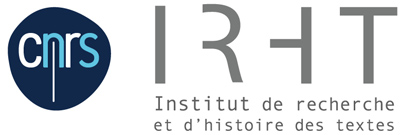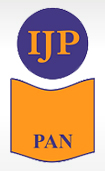Organization
- Bruno Bon (Dictionary of Medieval Latin, Institut de Recherche et d’Histoire des Textes, CNRS)
- Krzysztof Nowak (Dictionary of Medieval Latin, Institute of Polish Language, PAS)
Motivation
Building on the experience of the session organized during the IMC 2016 we are seeking to propose two sessions for the upcoming IMC 2018 that would focus on building and using electronic corpora in Medieval Latin studies. Our idea is to stimulate discussion and integrate the community of both seasoned users and creators of digital tools, as well as those who are taking their first steps in the corpus-based research. We believe that the IMC offers a great opportunity for such discussion since the event gathers scholars of a wide range of expertise who can help us to understand better what tools do scholars need and what are the research questions they expect corpora to answer.
The first session is intended to focus on more general questions of corpus creation, while the second, following closely the IMC 2018 topic, aims at showing how the corpora can be practically used in Medieval Latin research.
Session 1: What Corpus for Medieval Studies?
The newly launched project ANR VELUM (Towards Innovative Ways of Visualising, Exploring and Linking Resources for Medieval Latin) aims at constructing a Medieval Latin corpus that would prove useful for the scholarly community. It needs to reflect the variety of medieval writing as well as to provide scholars with a set of analytical tools. Although the term corpus is often attributed to haphazard collections of texts, the idea is to build a resource whose architecture would represent in a balanced way proportions of texts as produced during the Middle Ages. Facile dictu...
Suggestions: 1) Representativeness: What does it mean for a historical corpus to be representative? How can variety of medieval texts be represented in a limited corpus? What variety of Latin should be represented (time, region, genre, etc.)? How to assess the importance of a text (manuscript tradition, etc.)? 2) Texts: What editions to use and how to handle copyright? One corpus for all needs or multiple specialized corpora? 3) What query tools for historical research? What data display and visualisation methods? How to link corpora with other resources (linked data)?
Session 2: Vocabulary of Memory
Vocabulary studies have greatly benefited from the digital turn. As large corpora are now available, the analysis of thousands of occurrences have become easier than ever. Furthermore, metadata that the texts come equipped with facilitate comparative study of genres, single authors, etc. Methods of distant reading and automatic exploratory analysis are slowly becoming a part of standard equipment of medievalist working with linguistic sources. The session aims at showing how large corpora may help Latinists, historians or philosophers to understand better how the words were used and the concepts verbalized in Medieval Latin. In accordance with the IMC 2018 topic we will focus on the vocabulary of memory.
Suggestions: 1) Memoria & co.: What words for memory and similar concepts existed in the Medieval Latin? How did the lexical field evolve through the ages? 2) Does the memory-related vocabulary change with genre, text function or audience it is addressed to? 3) Metaphor: What metaphors was the concept of memory comprehended through? 4) How to automatically retrieve memory-related words from a corpus? How to identify main usage patterns (collocational analysis, etc.)? How to identify texts concerned with memory (keywords, topic modelling, etc.) ?
Who?
We are looking for contributions from linguists, historians, digital humanists and other medievalists, both established and early career scholars.
How?
Papers may be delivered in any of the languages of the IMC (English, French, German, Italian, Spanish). Proposals should be addressed by 22 September 2017 to both bruno.bon@irht.cnrs.fr and krzysztof.nowak@ijp.pan.pl.
Proposal should include:
- author’s name and institution;
- title;
- abstract of 150-200 words with max. 2-3 references.
The organizers cannot contribute to the conference and other fees of the session participants.
Should you have any questions, do not hesitate to contact us.
- Bruno Bon (PhD) is vice-director of the Institut de Recherche et d’Histoire des Textes (CNRS, Paris), and chief-redactor of the Novum Glossarium Mediae Latinitatis (UAI). He has been coordinating the ANR Omnia project (http://glossaria.eu) which resulted in retro-digitisation of dictionaries (Du Cange’s Glossarium and NGML) and development of the Treetagger parameters for Medieval Latin lemmatisation, and now coordinates the new ANR Velum project. Bruno’s research focuses mainly on historical semantics and textual statistics : https://www.irht.cnrs.fr/annuaire/bon-bruno.
- Krzysztof Nowak (PhD) is a Medieval Latin linguist and lexicographer. He is a member of team of the Dictionary of Polish Medieval Latin. He is responsible for the conception, coordination and programming of the eDictionary (http://scriptores.pl/elexicon/en) and the eCorpus (http://scriptores.pl/en/efontes/) of the Polish Medieval Latin. His recent research focuses on Latin corpus linguistics and distributional semantics : https://ijp-pan.krakow.pl/nasi-pracownicy/doktorzy/krzysztof-nowak.

